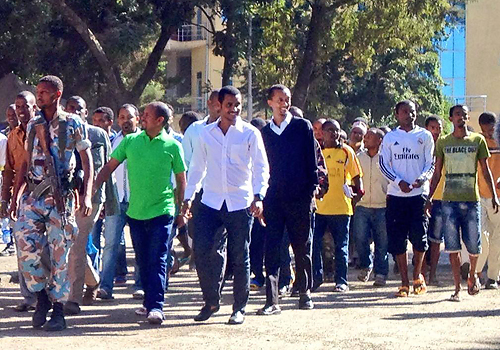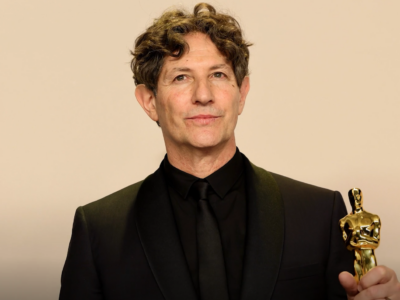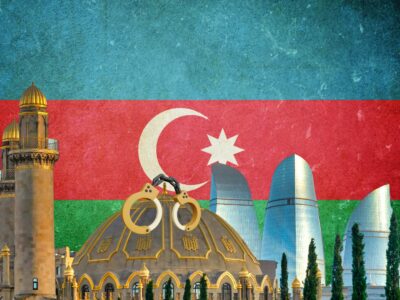
Ethiopians march for human rights in Washington DC, 2006. Photo by Elvert Barnes via Flickr (CC BY 2.0)
US President Barack Obama's last trip to Africa before his term ends will take him to Kenya and Ethiopia, where he'll be the first sitting US president to visit. Obama first toured Africa nearly two years ago, making stops in Senegal, Tanzania, and South Africa.
Obama's decision to stop in Ethiopia has surprised human rights activists and advocates for good governance both in Africa and elsewhere. Ethiopia is one of the worst human rights offenders in Sub-Saharan Africa. In its 2014 report, Human Rights Watch noted that Ethiopia increasingly restricts the freedoms of assembly and expression:
[…] the Ethiopian authorities continue to severely restrict the rights to freedom of expression, association, and peaceful assembly, using repressive laws to constrain civil society and independent media, and target individuals with politically motivated prosecutions.
Muslim protests against perceived government interference in their religious affairs were met by security forces with arbitrary arrests and detentions, beatings, and other mistreatment throughout the year. The trial of 29 protest leaders who were arrested in July 2012 has been closed to the public, media, and family members since January. Others convicted under the country’s deeply flawed antiterrorism law—including opposition leaders and four journalists—remain in prison.
Despite the troubling state of human rights in the country, Ethiopia remains a major recipient of foreign aid money and security support from the United States. A White House statement about the trip said that Obama will visit the country for bilateral meetings with the Ethiopian government as well as the leadership of the African Union as part of US efforts to “work with the countries and citizens of sub-Saharan Africa to accelerate economic growth, strengthen democratic institutions, and improve security.”
Last month, Ethiopians voted in parliamentary elections, where opposition parties said the voting was not free or fair. The African Union said the elections were peaceful, but fell short of using the words “free and fair.” While noting that the elections were peaceful, the US State Department expressed concern about restrictions on civil society, the news media, opposition parties, and independent voices and views.
Hannah McNeish, a freelance journalist East and Central Africa, juxtaposed last month's suspicious elections results with the White House's decision to honor Ethiopia with an official visit:
Ruling party in #Ethiopia, that #Obama has just announced visit to, takes all 546 parliamentary seats in election, inc. sole opposition seat
— Hannah McNeish (@HannahMcNeish) June 22, 2015
The ruling Ethiopian People's Revolutionary Democratic Front (EPRDF) and its allies won all parliamentary seats, including the only seat won by the opposition in the 2010 elections. The EPRDF has been in power since 1991.
Discussing Ethiopian elections, Freedom House observed that:
Ethiopia's elections are just an exercise in controlled political participation.
The one potential dividend of these sham polls, however, is the international attention they will garner for the government’s growing political repression. The blatant disregard for internationally recognised standards for free and fair elections just might convince Ethiopia’s largest donors that it is time to rethink their relationship with an increasingly authoritarian government.

Police lead Natnael Feleke (center right) and fellow blogger Atnaf Berahane (center left) to court. Photo courtesy of Trial Tracker Blog.
Ethiopian police, moreover, have routinely arrested and jailed bloggers and online journalists. Ethiopian blogger and GV author Endalk Chala says the suppression of freedom of expression online is not a surprise. The second most populous nation in Africa has only one Internet service provider, which is owned by the government.
In April 2014, nine bloggers and journalists were arrested in Ethiopia. Several of these men and women had worked with Zone9, a collective blog that covered social and political issues in Ethiopia and promoted human rights and government accountability. In July, they were charged under the country’s Anti-Terrorism Proclamation, a policy that was written with robust support from the United States government, as part of a broader effort to suppress organized crime in the Horn of Africa. The bloggers have been behind bars ever since, and their trial has only seen progress over the last few weeks, since the close of national elections.
The country's troubles with bloggers aren't new, either. On July 13, 2012, Ethiopia's federal court sentenced a prominent Ethiopian blogger, Eskinder Nega, and 23 other opposition activists to 18 years in jail for allegedly participating in terrorist activities. Human rights and good governance activists and other Twitter users reacted with shock and dismay.

Facebook image calling for the release of all political prisoners in Ethiopia. Image courtesy of Ethiopia Mitmita Facebook page.
Kenneth Roth, the Executive Director for Human Rights Watch recently asked why Washington appears to be rewarding repression in Ethiopia with an official visit:
Intensifying Ethiopia repression is met with sanctions, right? No, the gift of an Obama visit. http://t.co/yvjhulwhbq pic.twitter.com/QSfmo9a14E
— Kenneth Roth (@KenRoth) June 21, 2015
Unbelievable: as Ethiopia shuts down nearly any political opposition, Obama chooses to visit. http://t.co/YOubDzsOlH pic.twitter.com/utn3IGnjA8
— Kenneth Roth (@KenRoth) June 19, 2015
Ethiopia netizen Mengistu Lemma says he opposes the idea of Obama shaking hands with Ethiopian leaders:
I strongly oppose OBAMA shaking hands with the devils in Ethiopia next week.
— mengistu lemma (@mengistu9690) June 22, 2015
Nkunda Rwanda, a Rwandan human rights blogger, said:
The symbolism of Obama's trip (to #Ethiopia), would “further solidify the image that America stands behind Africa's autocrats.”
— Nkunda Rwanda (@Rwandankunda) June 19, 2015
Sarah Margon, the Washington Director for Human Rights Watch and former advisor to US Senator Russ Feingold, wrote on Twitter:
Ethiopia is too often presented as an African success story instead of the human rights disaster that is the reality. http://t.co/79V0conUBG
— sarah margon (@sarahmargon) June 20, 2015








33 comments
Obama’s vist to Ethiopia shows that Human rights watch groups millions of articles against Ethiopia are not trusted. in fact, HRW have been negative about Ethiopia for the last decade but in the contrary America’s and Europe’s relationship with Ethiopia is growing more every day.
Obama didn’t visit China based on its democratic governance.
When American presidents visit China, Russia, Saudi Arabia,
Nigeria, Israel, Egypt etc, it is OK for you guys.
But when he is to visit Ethiopia, a county trying its best to
come out of shit-dip poverty, a country registered an amazing results in the
economic and stability fronts, a country that successfully holds itself and its over 90 million people together avoiding otherwise a very inevitable disintegration, and a
nation that survived in a brutally hostile part of the world as a beacon of hope for Africa, you start screaming like a wounded dog. What a double standard and what a hypocrisy!
Scream louder if Obama is going to hear you and cancel his visit.
BTW Ethiopia welcomes this son of Africa if he wants to come
to this great nation.
But the notion that his visit will mean recognizing the GOE
and that would by some miracle change the world, is nonsense. It is really OK if he decides not
to visit Ethiopia.
The country moves forward with or without his ‘recognition’.
Well we dont mind your ideology – it works for you. But keep it to yourself!!! Why do you make it your business to stick your nose into how the lives of others need be? Our priority in Ethiopia is to restore economic well being for all – with or without western democracy. Change in any place shall come from within not pushed from outside. Remove the plank in your eye first, …
You realy made your full time engagment to try chock the shining ethiopian success story….for US government missing the roaring train of African transformation to the advantage of china is no more acceptable. Your fancy human right theory supported by an attitude of ‘I know better what is best for you’ is not acceptable not only for Ethiopian goverment but for Ethiopian people too….the deciding factor is peoples power…..
Editorial: Regarding the upcoming visit of H.E Mr. Barrack Obama’s visit to Ethiopia.
Ethiopians throughout the world are elated over the announcement of the first visit by a sitting American president to Ethiopia, whose father’s root can be traced just few miles from their border. It is also fitting that the first American President to visit the oldest black nation on earth happens to be black.
Mr. Obama’s visit to Ethiopia serves as an affirmation of Ethiopia’s effort to lift millions of its citizens from chronic poverty and destitution over the past two decades. It was just 30 years ago that American airwaves used to be inundated with USA LIVE AID broadcast of poverty stricken children. Today, Ethiopia is a thriving economy that has embarked massive public investment with the aim of improving the living standards for its people.
As any foreigner who has been to Ethiopia can attest , we are well known for our warm hospitality. We cannot wait to receive Mr. Obama and show him what a great people we are and the journey we have embarked on to reclaim our rightful place in history.
Enkuan Dehna Metu Ato. Obama.
Ethiopians Worldwide Congress.
Obama visit to Ethiopia Help the Two great peoples Collaboration against terrorism and people to people relation.
Ethiopia is a heaven in hell.
What is your name again :) get lost stupid loser